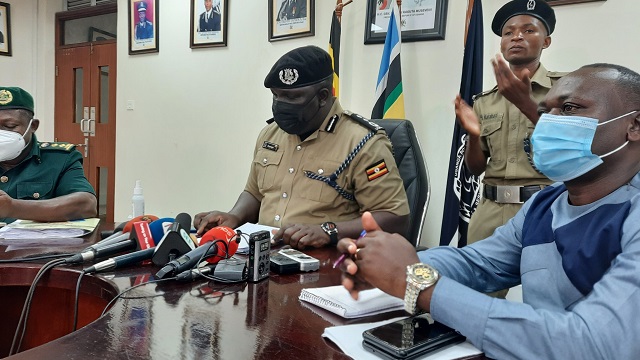
Kampala, Uganda | THE INDEPENDENT | A joint team of investigators from various security agencies and immigration is probing the increasing claims of Ugandan domestic workers whose internal organs have illegally been removed.
The police team is comprised of detectives from the forensic department, Criminal Investigations Directorate (CID), Interpol, while others are cross-border experts from the Immigration department.
It is reported that there are four cases of unlawful organ transplants involving four Ugandan women whose organs were removed when they went to offer domestic services in Saudi Arabia and Oman.
Two of the women including Milly Namazzi, lost their life after their kidneys were removed.
Namazzi was contracted to work in Saudi Arabia but was trafficked to Egypt from where her kidneys were allegedly removed.
Namazzi reportedly died on December 5, 2021, but her body was repatriated on January 17 this year. Although police have not released the postmortem, the family members claim that a pathologist at Mulago morgue revealed that Namazzi’s two kidneys were missing and her private parts had been cut off.
But Agnes Igoye, the Deputy Coordinator Anti-Human Trafficking department, says they were forced to come out to ensure an investigation is done after learning that Judith Nakintu, was a fortnight ago brought back with a missing kidney.
Nakintu is reportedly receiving treatment under the watch of relatives and covert security as they fear that the culprits who orchestrated her organ removal could kill her. Igoye says people going abroad for domestic work are a key target for organ transplant.
“As regards to organ removal, it involves doctors. We want to explain that organ trade is international. The UNODC report shows many people from the developing world are being targeted. The trade is more outside Uganda. We are not seeing many people being brought in here to remove their organs. We have to wait for the conclusion of that investigation,” Igoye explains.
The United Nations Office on Drug and Crime (UNODC) 2015 report, describes organ transplants as one of the notable medical inventions. The history of organ transplants stretches way back to the 1950s, when a successful transplant exercise was done.
The Global Observatory and Database on Donation and Transplantation shows 118,127 kidneys, liver, heart, lung, pancreas, and small bowel were performed in 2013. The data indicates that the biggest number of transplants about 79,000 were kidneys whereby 25,000 were for livers.
CID spokesperson Charles Twine, says they cannot conclude whether the victims organs were removed before a comprehensive postmortem analysis or medical examination for living victims. Citing an example of Namazzi’s incident, Twine said the investigations are complicated and they need time since the alleged crimes were committed in different jurisdictions.
“Namazzi was allegedly murdered in Egypt. She had gone for labor. For us, our investigations are very methodical and procedural. It is a complex investigation considering the alleged death or murder took place in a different jurisdiction. It took place in Egypt,” Twine said.
Twine adds that it will involve the office of the DPP, Attorney General, Interpol, and Foreign Affairs. But still, Twine says the postmortem report might not be shared with the public since it will be vital evidence for prosecution.
UNODC indicates that $600m was earned through illicit organ transplants. The kidney lasts for 48 hours from removal to transplant, the pancreas segment lasts 12 to 18 hours, liver segment lasts 12 to 18 and the lung rob lasts 2 to 4 hours.
*****
URN
 The Independent Uganda: You get the Truth we Pay the Price
The Independent Uganda: You get the Truth we Pay the Price



